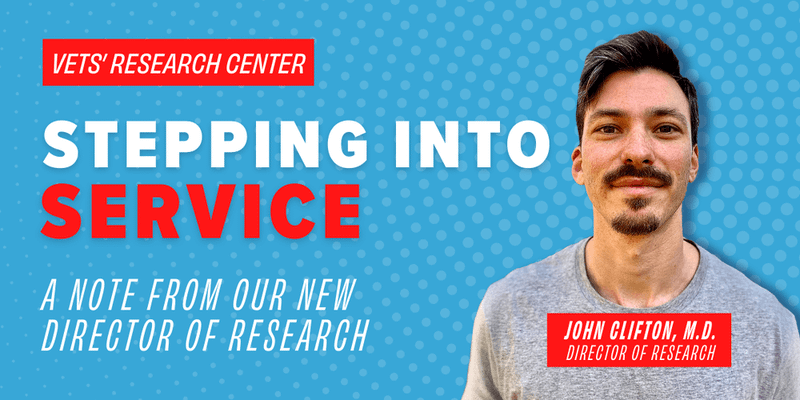By John Clifton, M.D., VETS Director of Research
First, thank you to the VETS team and to this incredible community. It’s an honor to step into the role of Director of Research for what I believe is one of the most important healing missions of our modern age.
A Decade of Psychedelic Healing and Research
Over the past decade, I’ve facilitated psychedelic-assisted healing experiences for hundreds of people. I’ve also studied thousands more who have undergone intentional therapeutic work with psychedelic medicines. The stories of transformation I’ve encountered, especially from veterans, continue to move me deeply. Their resilience and healing journeys often bring me to tears.
Still, while we’re witnessing real hope and progress, psychedelic-assisted therapy as a field is in its early stages. In many ways, it’s still in a pre-adolescent phase within our culture. Unlike traditional plant medicine lineages where practices have been passed down and refined over generations, most clinicians and scientists are entering this space in the United States without that inherited wisdom. There is much we can learn from traditional medicine lineages when approached with humility, consent, and mutual respect. These relationships must be reciprocal and grounded in ethical collaboration. Many of the substances we’re working with today, such as MDMA and 5-MeO-DMT, have only been synthesized or discovered within the last century. Even more, we’re using traditional medicines like psilocybin (from mushrooms) or ibogaine (from Iboga) in radically different settings for radically different health conditions than the context in which they were used hundreds of years ago.
In many ways, we’re navigating largely uncharted territory. Research will be our friend on this journey. As funding increases and barriers to more creative and robust projects are broken down, we’ll see some really interesting work evolve in the coming decades.
Veterans Deserve Safe, Effective Solutions
To ensure safety, efficacy, and accessibility, especially for veterans whose physical and mental health profiles can be uniquely complex, we need robust, well-funded, and ethically grounded research.
We also need policy frameworks that allow this science to evolve without unnecessary obstruction. I’ve seen firsthand how difficult it is for psychedelic scientists to do the research they want to do. The ideal time to have built this infrastructure was years ago. But today is what we have, and there’s no better time to move forward with clarity, integrity, and urgency.
Looking Ahead: My Vision for VETS Research
I’m excited to help VETS deepen its research efforts, build meaningful collaborations, and support the development of safe, trauma-informed psychedelic therapies. I’m equally committed to helping educate our broader community, so that together, we can build a future where healing is possible. I’m curious to hear what you’re excited to learn about and what you feel confused about in the psychedelic field so that we can clarify, destigmatize, and empower learning in a community-driven manner.
Thank you for welcoming me into this role. I look forward to what we’ll build together.
About John Clifton, M.D., VETS Director of Research
John M. Clifton, M.D. holds a B.A. in neuroscience from Vanderbilt University and earned his M.D. from The University of Maryland School of Medicine. He developed his early research and clinical skills at the Johns Hopkins Center for Psychedelics and Consciousness Research where he supported and co-authored several clinical trials and epidemiological studies. He then went on to complete medical school where he conducted additional original psychedelic research. From psychedelic experiences to mind-body approaches for chronic pain recovery, John continues to support a wide variety of individuals in their healing processes using evidence based coaching techniques. He currently resides in Baltimore, MD.

